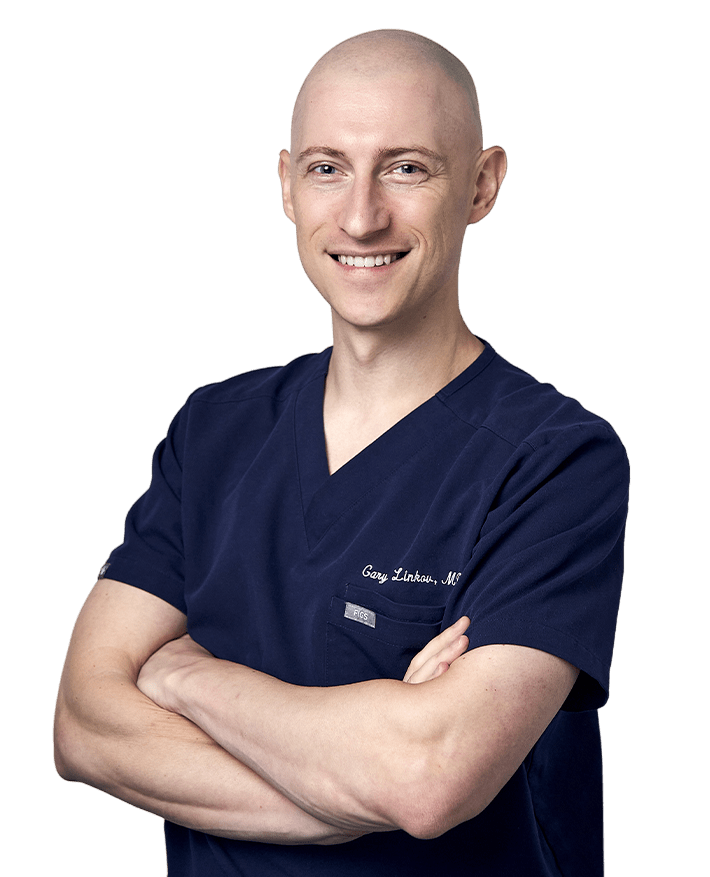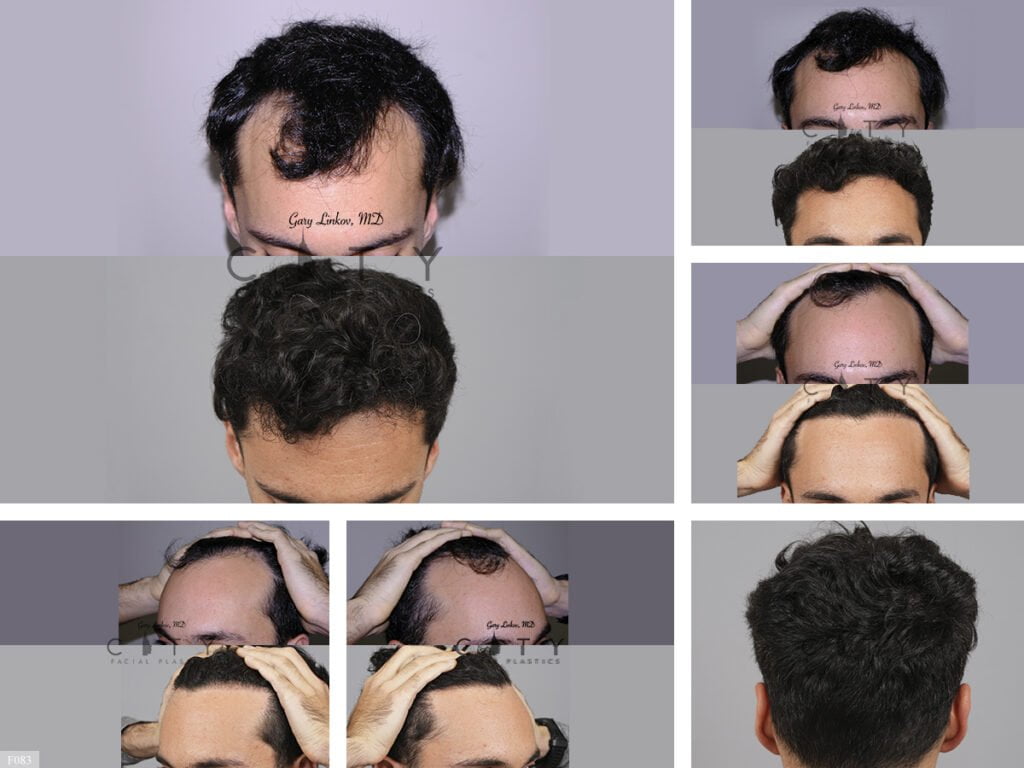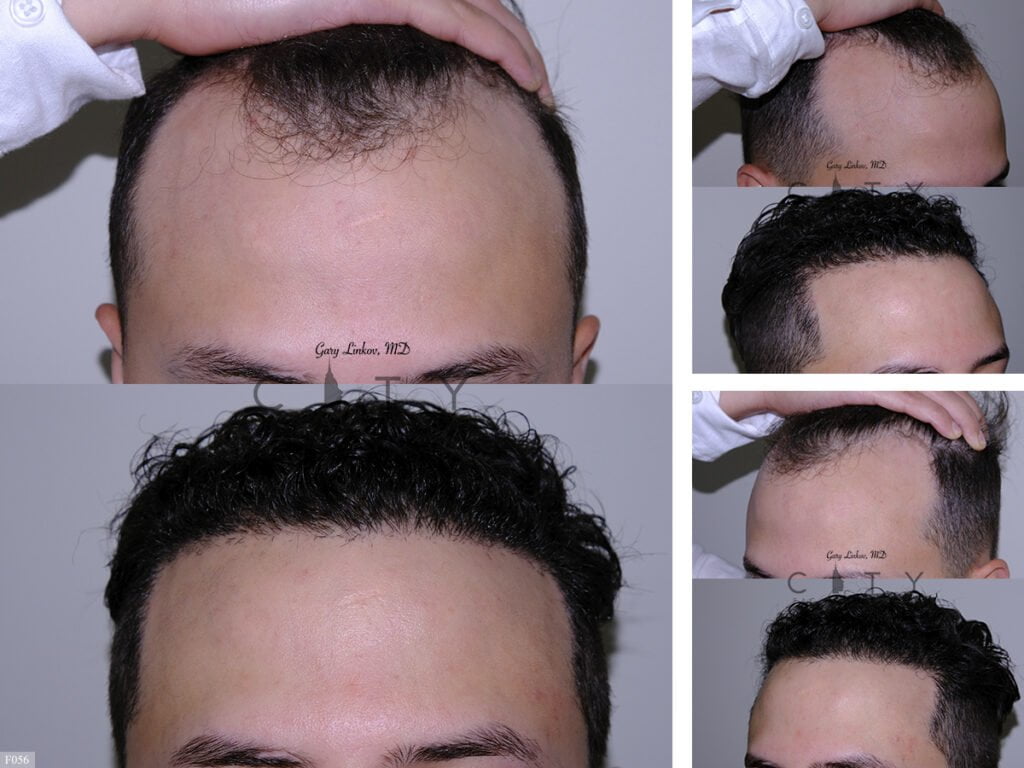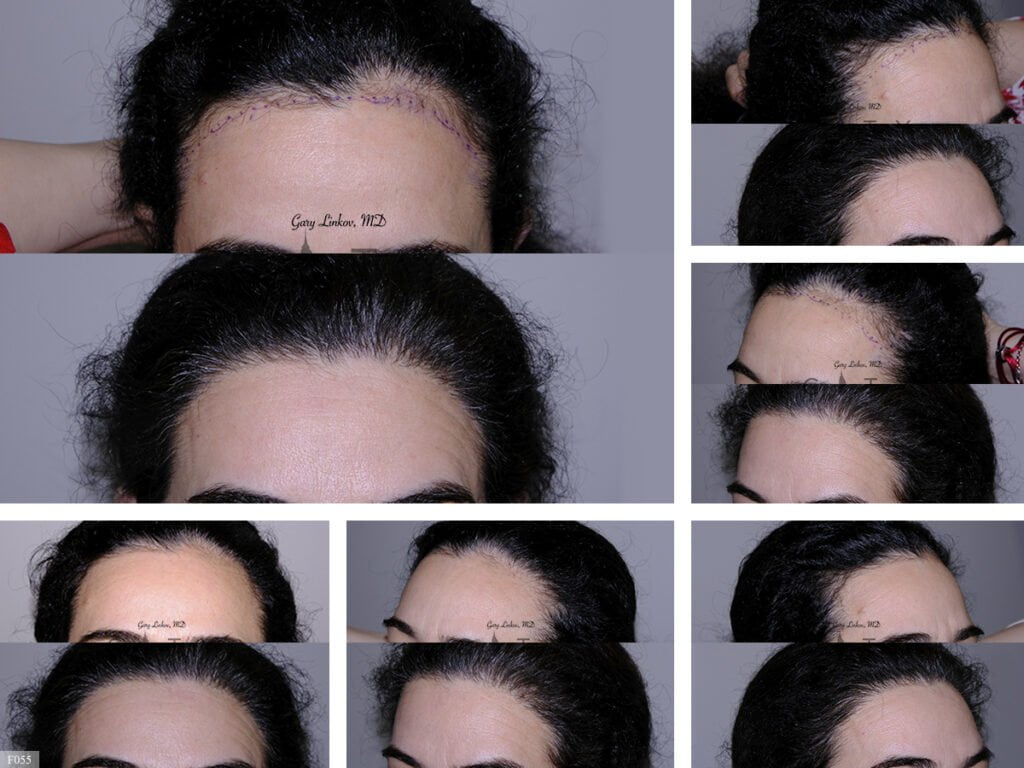PCOS
Polycystic ovary syndrome, commonly referred to as PCOS, is a condition that women and girls develop. It results in a wide range of uncomfortable symptoms, including hair loss and infertility. PCOS hair loss is no less traumatic for many women as having irregular menstrual cycles, another PCOS symptom. Fortunately, in New York City, you have access to the best hair transplantation doctor, offering PCOS hair loss treatment that delivers PCOS hair growth. If you’re wondering how to treat PCOS hair loss, call the experts at Linkov Hair Surgery in Manhattan for a consultation.

What Is Polycystic Ovary Syndrome?
Polycystic ovary syndrome, referred to most often as PCOS, is a common and treatable cause of infertility. The condition affects the function of your ovaries, leading to an abnormal amount of androgens in your system. Androgens are male sex hormones. If you’re suffering from PCOS, you develop multiple small cysts, which are fluid-filled sacs, in your ovaries. The cysts contain immature eggs, but fail to release those eggs regularly.
The condition is a hormonal disorder that affects up to 12 percent of women of reproductive age. While it’s often discovered during fertility treatments, it can strike girls as young as 11 years old. Women with PCOS suffer from a number of overall health and appearance issues. PCOS hair loss is just one of the symptoms of the condition.
If you have a diagnosis for PCOS and you need a solution for the accompanying hair loss, visit Dr. Gary Linkov at Linkov Hair Surgery in his Manhattan hair restoration office. This doctor relies on a multi-disciplinary approach to PCOS hair loss to deliver effective hair restoration treatments.

What Are the Main Symptoms of PCOS?
PCOS symptoms typically begin to reveal themselves when your menstruation starts. The symptoms may also develop at a later age, but they still affect your ability to get pregnant and conceive. Common symptoms include:
- Irregular periods or no periods A major sign of PCOS is having a problem with your menstrual periods. Your cycles may be irregular, to the point that some women with polycystic ovary syndrome have no periods at all.
- Fertility problems Women with PCOS struggle to get pregnant because of irregular or no ovulation.
- Hirsutism Too much of the androgen hormone results in excess facial hair and body hair on your chest, back and buttocks.
PCOS hair loss occurs because of the excess androgenic hormones. The type of hair loss associated with PCOS is called androgenetic alopecia, sometimes referred to as female pattern hair loss. Symptoms of PCOS hair loss include:
- Hair that breaks easily
- Dry, shorter, thinner or non-pigmented hairs called vellus
- A gradual thinning of your hair at the part line

What Are the Effects of PCOS Hair Loss?
Hair is a major part of a woman’s identity. Due in part to the NYC culture and fashion, women take pride in having beautiful, lush hair. Any cause of premature hair loss can lead to a loss of self-esteem and increasing embarrassment. PCOS hair loss is even more devastating because of other accompanying body changes due to PCOS. Some factors that make loss of PCOS hair loss serious include:
Psychological distress A diagnosis of PCOS is already devastating, and physical symptoms such as hair loss just make things worse. The hair won’t grow back naturally, but luckily, advances in hair loss treatments help you grow the hair back. Additional stress, however, interferes with a successful PCOS hair loss treatment.
Relationship problems Losing your hair lowers your self-confidence, so it also affects your personal relationships. This is a strong reason to seek treatment for PCOS hair loss.
Social phobia If you loved going out and making friends, hair loss puts a damper on that impulse. The effort you have to make to hide your hair loss may make you more withdrawn.
Work-related problems Your hair is a big part of your image, and if hair loss happens to you at an early age, you may lose the initial drive you had. This lack of drive may affect your work performance.
Loss of self-esteem As you notice more hair shedding, you may lose your self-worth. The stigma that comes with hair loss or baldness may make you feel less worthy in a world that emphasizes appearance.
Mental trauma Alopecia caused by PCOS can lead to depression and anxiety in some sufferers.
Once you begin ongoing PCOS treatment, your symptoms, including hair loss, dissipate. Your doctor may prescribe different medications after a diagnosis to get your hormones in balance. You may also be referred to your own OB/GYN for further tests and treatments, which eventually reduce your hair loss. At the same time, your doctor may look for symptoms of other medical conditions that may also be contributing to your continued hair loss, such as:
What’s the Treatment for PCOS Hair Loss?
Advances in hair restoration techniques make PCOS hair loss treatment possible. Once you’ve gotten PCOS treatment to bring your disease under control, your doctor may recommend hair loss treatments for PCOS that include:
Hair transplant A hair transplant is one of the most common hair loss treatments for women in which your top doctor removes hair follicles from one area with a lot of hair and transplants it into the area of thinning hair or baldness. Procedures used include a follicular unit extraction, a follicular unit transplantation and a Neograft hair transplant as the options for hair transplants for women with PCOS.
Medications for PCOS Hair Loss Your top doctor may recommend medications such as minoxidil and nutraceuticals to treat your hair loss.
Hair replacement systems A hair replacement system is a hairpiece or wig made up of synthetic or natural hair. You glue the piece to your scalp to cover hair loss caused by PCOS. Wigs and hairpieces are particularly effective if your hair loss is temporary.
Weight loss Losing weight is one of the effective ways to reduce androgens in your system. A reduction in androgens reduces your PCOS symptoms, including hair loss.
Contact Linkov Hair Surgery so your hair loss doctor can evaluate you for PCOS hair loss treatment. You need a firm diagnosis before you can get treatment, which gets you back on the road to recover your previous self-esteem and healthiest body.

Dr. Gary Linkov is an experienced Ivy League-educated hair transplant surgeon. Having suffered from hair loss himself, he treats his patients with compassion using a multi-disciplinary approach based on the latest hair regrowth methodologies and technologies.
He has authored numerous peer-reviewed articles and book chapters, contributing to the field. Dr. Linkov’s expertise in hair transplant surgery has earned him recognition and made him a sought-after physician. He was featured on the Dr. Oz Show for his needleless PRP hair restoration procedure. USA Today ranks him among the top three plastic surgeons in the United States for reconstruction and natural-looking results.
Publications More about Dr. LinkovLinkov Hair Surgery
150 E 56th St, #1A
New York, NY 10022
(212) 970-9404






